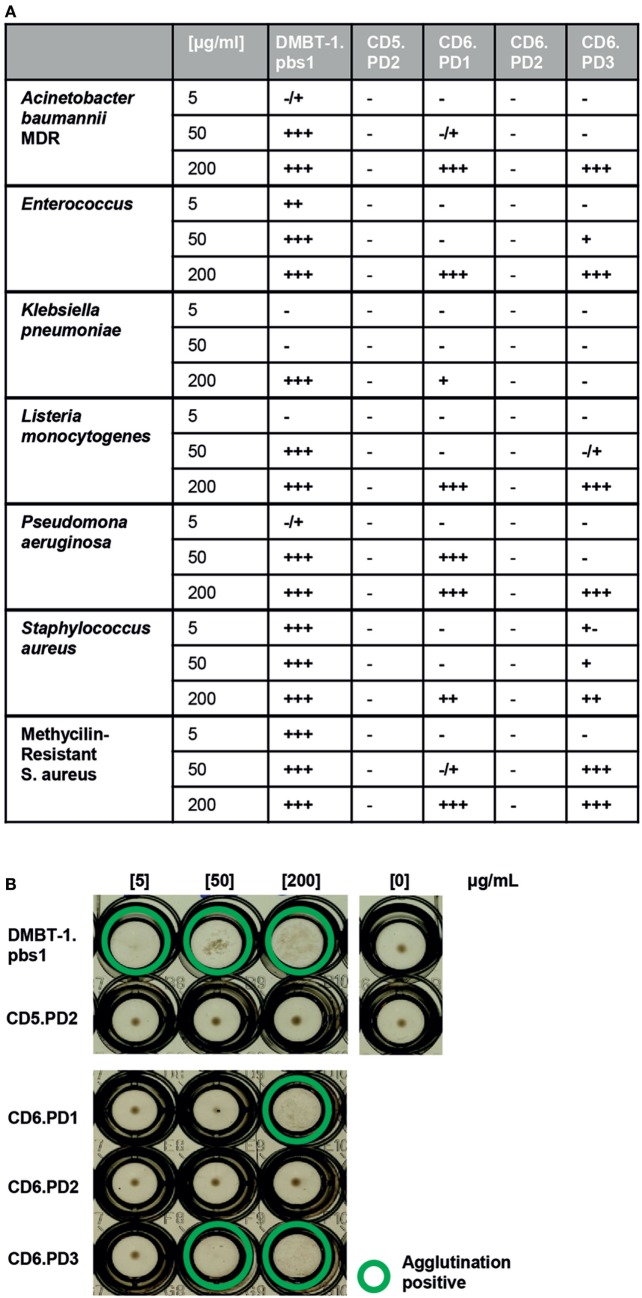Figure 2.
Bacterial agglutination properties of CD6-derived peptides. Increasing concentrations (5, 50, and 200 µg/mL) of the indicated CD6 (PD1, PD2, and PD3), deleted in malignant brain tumors-1 (DMBT-1) (pbs1; C+), and CD5 (PD2; C−)-derived peptides were incubated for 2 h at room temperature in 96-well U-bottomed plates with alive bacterial cell suspensions [75 × 106 colony-forming units (CFU)/mL] in TTC buffer. Bacterial agglutination was scored and consensed by two independent observers as −, ±, +, + +, or +++. (A) Summary of the agglutination results obtained with the indicated panel of Gram-negative (multidrug-resistant Acinetobacter baumannii clinical isolate; Enterobacter cloacae ATCC 23355; Escherichia coli ATCC 25922; Klebsiella pneumoniae ATCC 13883; Listeria monocytogenes ATCC 19111; and Pseudomonas aeruginosa ATCC 27853) and Gram-positive [Staphylococcus aureus ATCC 25923; methicillin-resistant S. aureus (MRSA) clinical isolate] bacterial strains. (B) Representative agglutination results obtained for the MRSA clinical isolate.

